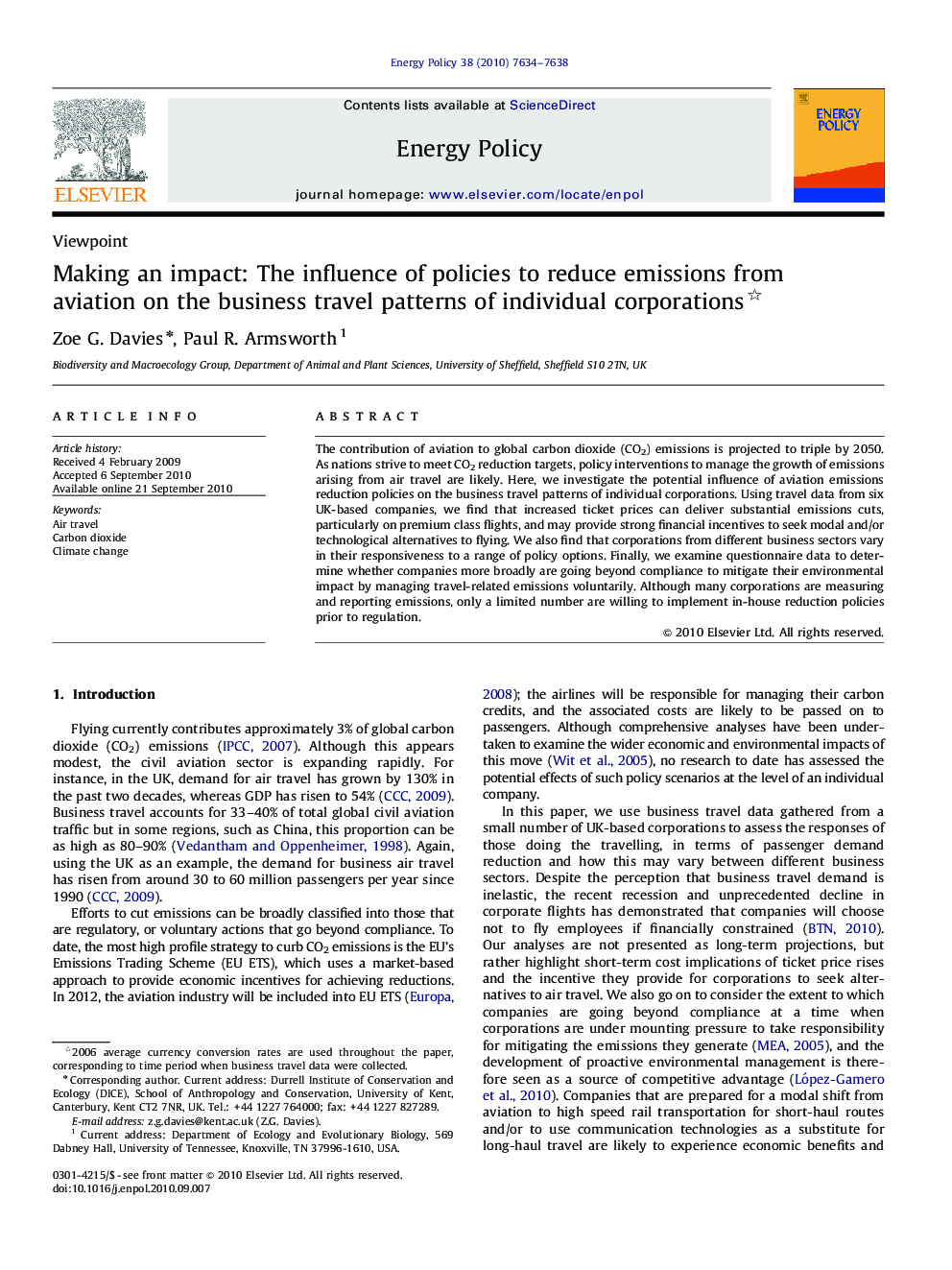| Article ID | Journal | Published Year | Pages | File Type |
|---|---|---|---|---|
| 996183 | Energy Policy | 2010 | 5 Pages |
The contribution of aviation to global carbon dioxide (CO2) emissions is projected to triple by 2050. As nations strive to meet CO2 reduction targets, policy interventions to manage the growth of emissions arising from air travel are likely. Here, we investigate the potential influence of aviation emissions reduction policies on the business travel patterns of individual corporations. Using travel data from six UK-based companies, we find that increased ticket prices can deliver substantial emissions cuts, particularly on premium class flights, and may provide strong financial incentives to seek modal and/or technological alternatives to flying. We also find that corporations from different business sectors vary in their responsiveness to a range of policy options. Finally, we examine questionnaire data to determine whether companies more broadly are going beyond compliance to mitigate their environmental impact by managing travel-related emissions voluntarily. Although many corporations are measuring and reporting emissions, only a limited number are willing to implement in-house reduction policies prior to regulation.
Research highlights►Ticket price rises can deliver substantial emissions cuts, particularly on premium class flights. ► Corporations from different business sectors vary in their responsiveness to policy options. ► Many companies measure emissions but few will apply in-house reduction policies before regulation.
